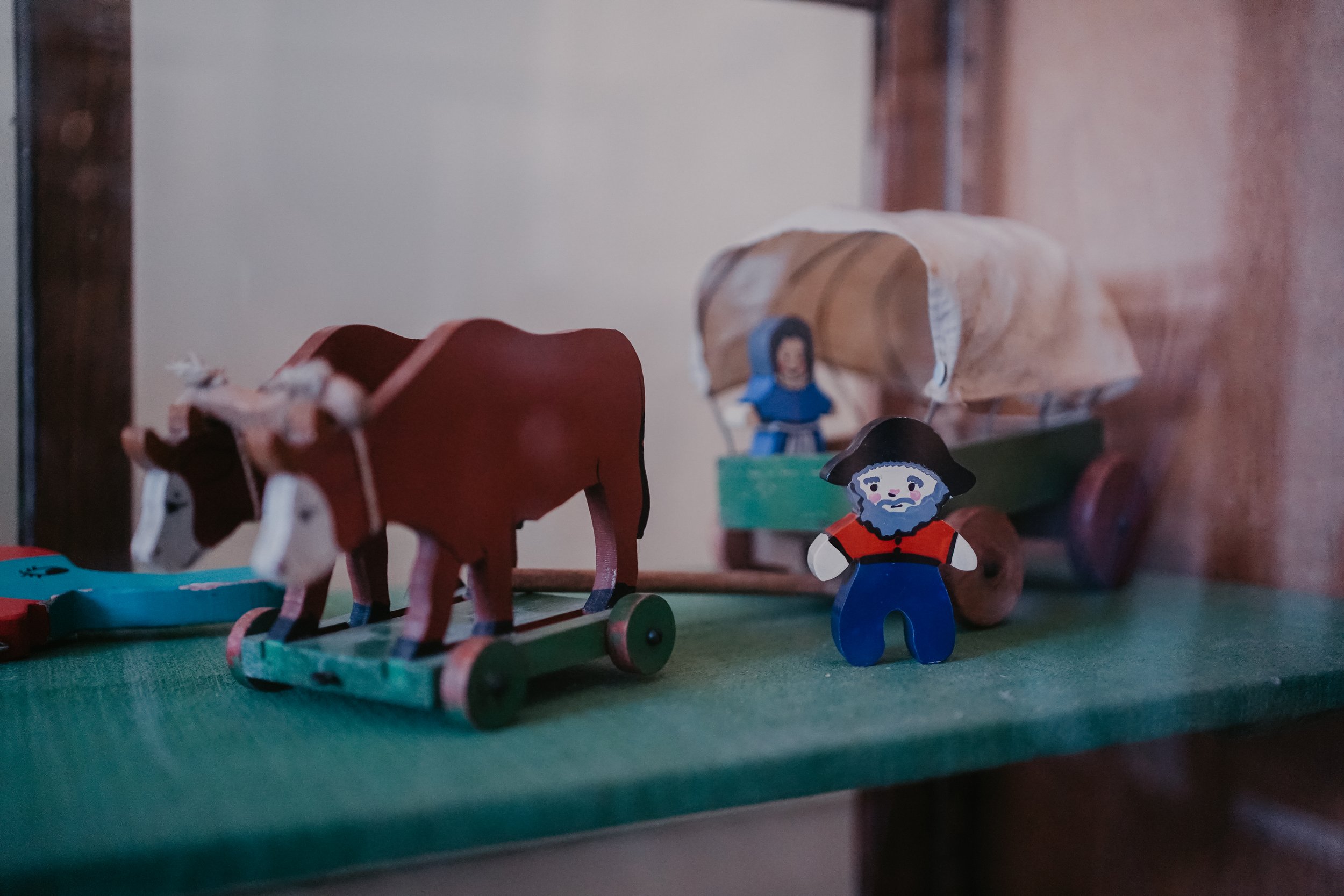Tryon Toy-Makers and Wood Carvers
There is much to admire about Eleanor Vance and Charlotte Yale, the exceptional women who established their Tryon woodworking shop in 1915 after having earlier developed weaving and woodworking production at Biltmore Industries in Asheville with the support of George and Edith Vanderbilt. They had instructed children in making wooden toys as early as 1901 prior to establishing the Biltmore Village workshop.
Who were these young woodworkers? The record shows that Yale and Vance, schooled in the social service ethos of the era, wanted to enhance their students’ limited employment options during and following the bleak WWI years beyond the factory millwork and other debilitating employment that was their common fate following the limited schooling then available.
Both boys and girls were employed in most aspects of the workshop as shown in contemporaneous photographs. The youths were paid fairly for their labor, learned practical skills and perhaps most importantly, absorbed life lessons imparted by their instructors, part of the overarching moral and spiritual vision of the two founders. This concern for the welfare of their young charges offered a marked improvement over their typical lot in life.
Traced from Vance’s patterns, the toys in the workshop- while largely hand fashioned with basic tools- were never precisely “handmade,” as a number of mechanical tools were employed by the older and more experienced workers.
Foot- or motor-powered scroll saws were used in addition to handheld coping saws for roughing out figural shapes. Those destined for flat parts, such as wheeled toy platforms and playset figures and their stands, were probably machined to at least nominal thickness prior to delivery to the workshop, all to be sawn to proper shape and size and refined by hand work.
Lathes were used for turning tiny bowls and other circular parts. Though relatively primitive compared to modern power tools, they were efficient at providing a stock of blanks for the young workers’ embellishment.
Skillful paint finishing of the shaped and sanded parts was of paramount importance to the products’ appeal. While revealing a naïve aesthetic approach as would be expected of apprentice work, the surviving toys clearly
demonstrate that sloppiness was never tolerated by the program’s instructors. This carefully-managed intersection of engaging design, skillful fabrication and creative paintwork is the hallmark of the Tryon Toy-Makers and is the reason their products are so pleasing to the eye and in the hand.
America’s toy industry benefited during World War I when the wartime embargo stemming the flood of inexpensive toys from the Continent gave domestic businesses an opening. The company got off to a promising start, aided by prominent supporters, a buoyant economy, and, to a degree, the anti-German sentiment among the populace. Price points for Tryon’s toy products tended towards the upper end for their class, that is, quality hand-crafted wood toys.
In 1928, Toy-Makers playset prices ranged from $1.25 to $12.50 depending on their complexity and number of parts. All things being equal, their impressive Mountain Home playset marketed for $12.50 would fetch $160 in 2020 at a cumulative inflation rate of 1182% and probably more.
Then, like most American enterprises, the Toy-Makers suffered during the economic catastrophe of the Great Depression when the diminishing market for their relatively high-priced toys—for they were always marketed as premium handicraft products—took its toll. The workshop’s founders stayed the course, maintaining
perennial favorites and adding new production items to suit the public’s interests even as plastics entered the industry, but the grand era of classic wooden toys was passing.
The willingness of the young Toy-Makers to learn a new craft and language of expression, their tenacity in overcoming the inevitable disappointments at the workbench and finishing table, and surely their abiding camaraderie day-in and day-out exemplifies America’s history of public-spirited manual arts training. May
their endeavors inspire us to support similar enterprises in the years to come!

